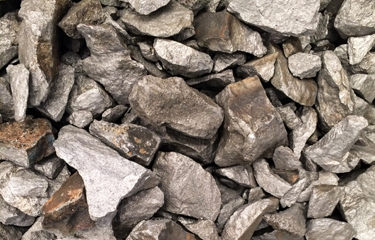Chinese interest in Burundi’s rare earth minerals has drawn Beijing largesse to Burundi, including training in tilapia production for the African country’s fish farmers.
Burundi is one of the world’s top-10 producing countries for rare earth minerals, most of which are exported to China, which dominates global processing capacity. The minerals, which include lithium, scandium, graphite, and gallium are shipped from Africa to China processing plants, which in turn supply a growing global demand for the metals, which are vital components to some of China’s strategically important industries like electric cars and smartphones.
In exchange, China has increased its economic support of Burundi, which has come to include a transfer of aquaculture know-how to Burundian freshwater fishery experts, who have participated in training trips to China sponsored by the Chinese Commerce Ministry. The exchange is backed by the United Nations, which has supported a freshwater aquaculture training program for visiting Africans at the Chinese Academy of Fisheries Sciences.
Fish farming is prevalent in Burundi’s Lake Tanganyika – the second-largest lake in Africa and the second-largest in volume after Russia’s Lake Baikal.
Recently, a training crew from the provincial government of Fujian Province, a leading aquaculture region in Southeastern China, visited Burundi to teach farmers the benefits of seedling selection, feeding practices, and disease control in the farming of tilapia. Chinese tilapia specialist Liu Mingzhen led an the “overseas fishery aid” crew from the city of Nanping that helped to increased yields in aquaculture ponds in Burundi by more than 500 percent, according the Nanping office of the Chinese Agricultural Ministry. The success of the project brought Mingzhen the Outstanding Contribution to Fisheries Prize from the Burundi Veterans Association, according to the Chinese embassy in Burundi.
Over the past decade, China has become Africa’s largest bilateral lender. While in recent years, China has become more discerning in its lending to Africa as concerns have been raised over the ability of African governments to repay their loans, Burundi’s minerals have made it a priority for retaining funding. During the 2019 China-Africa summit, Chinese President Xi Jinping promised nearly EUR 10 billion (USD 10.1 billion) in loans to finance Burundi’s 10-year (2018-2027) development plan.
Prior to 2015, the E.U. had supplied half of Burundi’s annual budget under the Cotonou Agreement, which requires Burundi to adhere to principles including respect for human rights and good governance. The aid also came with other strings attached, including a requirement that it be focused on healthcare and government systems spending.
But in recent years, China has pledged to replace the European Union as Burundi’s main benefactor. Besides loans and aquaculture assistance, Chinese aid projects in Burundi also include rice farming and electrification projects, according to the Chinese embassy in Burundi. Additionally, in keeping with its practice of building recognizable landmarks and visible infrastructure, China has “gifted” to Burundi a USD 22 million (EUR 20.3 million) presidential palace in the port and commercial city of Bujumbura.
Photo courtesy of Thammanit Panomsuk/Shutterstock







